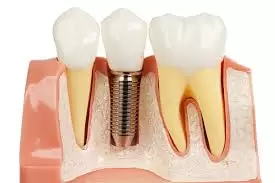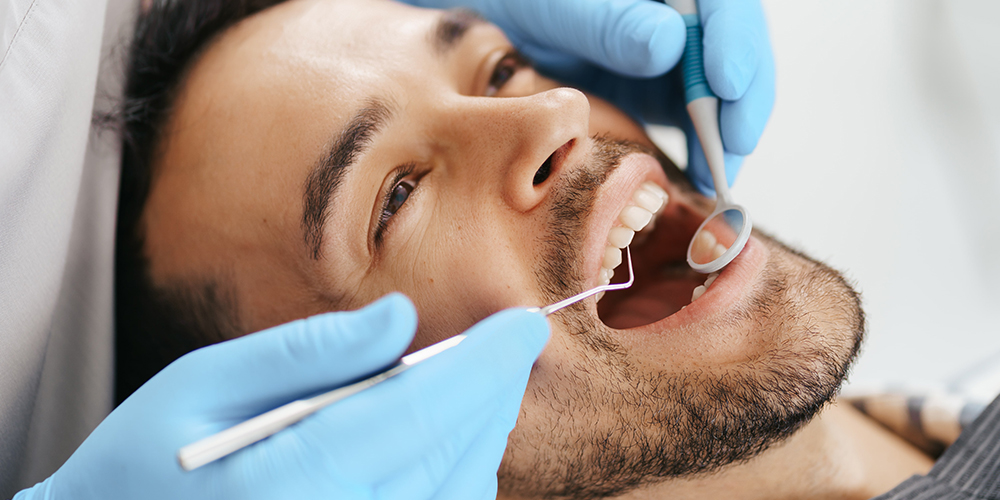
Dental Implant Operation Details Istanbul Turkey |
||
|---|---|---|
 Accommodation 2-3 Days |
 Hospital Stay 0 Day |
 Operation Duration 0,5-2 Hours |
 Anaesthesia local or general anesthesia |
 Recovery Duration 7-10 Months |
 Follow Up Visit 2nd (If requires) |
Click Here For More Information |
||
WARNING The duration of treatment and trecovery time after the treatment may vary from patients to patients. The above information includes estimated values prepared for patients from abroad.
“What Are Dental Implants?
Dental implants are the closest artificial structures to healthy and natural teeth placed in the jawbone by a dental surgeon. Those who have lost one or more teeth may need a dental implant to be able to safely eat, smile, laugh, talk and live all daily activities the way they want without worry.
Similar to screws, dental implants are artificial tooth roots that provide solid support for artificial (false) teeth such as crowns, bridges or dentures. A connector known as an abutment is placed over the dental implant to hold and support these artificial structures.
Dental implants have been used for over 30 years and dental implant surgery is one of the safest and most predictable procedures in dentistry when performed by experienced dental surgeons.
What Are the Advantages of a Dental Implant?
Although the costs of dental implants are high, they offer you many advantages when considered in the long term:
- Dental implants provide a more natural appearance and a comfortable life
- Dental implants allow you to safely and comfortably chew, speak and laugh
- Dental implants do not limit what you eat as with dentures, you have the freedom to eat what you want without any restrictions as with normal teeth.
- Dental implants reduce the risk of cavities and sensitivity in nearby teeth
- Dental implants prevent further tooth loss
- Dental implants provide better preservation of bone in the missing tooth area
- Dental implants are easy to maintain and similar to natural teeth (brushing at least twice a day, flossing and regular dental check-ups) and do not need to be removed and cleaned every night as with dentures.
- Dental implants are long-lasting as long as they are well cared for and follow your dentist’s recommendations.
- Given their lifetime cost, dental implants are less costly than other restorations that may need to be replaced on a regular basis.
- Dental implants vary depending on their position in your mouth and the amount of bone in the jaw where they are placed, but generally offer a predictable success of as high as 98%.


Who Is a Candidate for Dental Implants?

Anyone who wants to replace one or more missing teeth, has good oral health (especially healthy jawbones and gums), and is willing to undergo a partially invasive treatment process can be a candidate for a dental implant. However, it is desirable that it still meets the following conditions:
- The gums must be healthy for dental implants: It is very important to have healthy gums before and after the dental implant. Those who will receive dental implants should be willing to care about the health of their gums. Gums that are not well taken care of can lead to post-implant failure. Patients with gingivitis or periodontal disease are probably not ideal candidates for dental implant.
- Where the dental implant is to be placed, there must be sufficient bone density to protect and support the dental implant: Dental implants can also be placed in people who have bone loss in the jawbone due to various reasons (such as dental abscess). However, this will require a bone graft procedure to increase bone density.
- Oral health and hygiene must be perfect for a dental implant: There should be no infection or other dental problems that could prevent dental implant surgery. In addition, it will be necessary to pay attention to oral hygiene and especially the care of the gums around the implant after the dental implant surgery. Regularly performing daily brushing, interdental brushes and dental floss, and not interrupting your periodic dental check-ups will prolong the integration of the implant to the bone and its lifespan.
- It is recommended to quit smoking because it impairs the integration of the dental implant to the bone, gum health and oral hygiene.
- In those who have excessive grinding and clenching problems (bruxism), too much pressure can be applied to the dental implants, which may lead to the failure of the dental implant. Therefore, those with such serious conditions are not suitable candidates for dental implant surgery. If your complaints are mild, it may not cause much of a problem for dental implant surgery. However, it is recommended that you inform your dental surgeon about such a problem in advance and that the necessary treatments are completed before dental implants. Nightguard plates can be used in the treatment of bruxism and these plates can also reduce damage to the dental implant.
How To Progress Dental Implant Surgery Procedure?
Although dental implant surgery is an expensive dental surgical procedure, it is important to keep in mind that it is an investment in time and a healthier life. Thanks to dental implant surgery, you will replace your missing teeth and have long-lasting permanent teeth that you can use all your life.
Unlike dentures, which are difficult to eat and can be dislodged from time to time, dental implants are placed directly in the jaw and integrated with the bone, providing a more comfortable eating opportunity. Thanks to a good crown to be placed on the dental implant, you will gain a more beautiful appearance and good chewing.
The first stage of dental implant surgery is the consultation with the dental surgeon. Below you can find all the stages of dental implant surgery under the subheadings:
Dental Examination and Assessments
The dental surgeon will first perform a dental examination to determine if you are a good candidate for a dental implant. Not everyone may be a suitable candidate for dental implants. Therefore, before dental implant surgery, the dental surgeon will examine your teeth and gums, and will make a general assessment, taking into account your medical and dental history and your expectations from the treatment.
If there is not enough healthy bone material in the jaw where the implant will be placed, or if there is bone resorption, bone grafting may be required for the healthy integration of the dental implant with the bone. If a bone graft is not placed, the integration of the implant with the bone will not be complete and lead to the failure of the dental implant.
If you have gum disease, they will need to be treated before undergoing dental implant surgery.
If you have unhealthy teeth in or near where your dental implants will be placed, they will also need to be extracted before dental implant surgery.
If you have a large amount of tooth loss, dental implants alone may not be enough, and implant supported prostheses can be added to your treatment plan.
If your treatment will only be preceded with a dental implant and no additional dental treatments will be required, digital dental radiographs and measurements will need to be taken.
Dental Implant Placement in the Jaw Bone
If you have no bone material loss and no gum or dental disease, you are ready for the dental implant surgery. You can be given local anaesthesia or, depending on the situation, dental sedation and even general anaesthesia so that you do not feel pain during the operation and the surgeon can work comfortably.
Dental implants, which you have determined with your dental surgeon beforehand, are placed in the jawbone through small incisions that your surgeon will make on your gums. A hole is drilled in the jawbone that occurs after the gum incision and the dental implant post, which will form the root of your new artificial tooth, is placed in this hole. Afterwards, gum incisions are sutured after the dental implant is placed so that the dental implants can complete their integration with the bone.
Temporary Crown Placement
Your sutured gums can be left this way during the healing and bone-implant integration process, or if you want a more aesthetic appearance, a temporary crown can be placed on it. For this, an impression is taken and the temporary crown is placed on the implant when the construction phase is completed in the laboratory. This means that a certain amount of time will be added to this stage of your treatment.
Dental Implant-Bone Integration and Healing
In order for permanent crowns to be placed on the implants, the dental implant and bone integration must be completed. This usually takes 3-6 months, sometimes this process can take longer, but usually not more than 9 months.
Abutment and Permanent Crown Placement

When the dental implant-bone integration (osseointegration) process is completed, abutments that will provide the connection between the dental implant and the permanent crown are placed on the dental implants.
After the abutment is placed, your measurements are taken and then your crowns are sent to the laboratory to be fabricated according to these measurements.
Sometimes, dental restorations such as full or partial dentures, or bridges, other than crowns, may be required on abutments. These are also sent to the laboratory for fabrication.
Abutments provide you with a temporary restoration while you wait for the fabrication process in the laboratory.
Finally, crowns, dentures (full or partial) or bridges that have completed the fabrication phase in the laboratory are screwed onto the abutment and thus your implant process is completed.
What Is the Full Mouth Dental Implant Option in Turkey?
In dental implant surgery, there are 5 types of implant application options: immediate (Implants are placed immediately after teeth extraction), early (Implants are placed 6 weeks after tooth extraction), late (Implants are placed 6 months after tooth extraction), all-on-4 and all-on-6 and full mouth dental implants.
Full mouth dental implants are an alternative treatment option to dentures for patients who have lost all or most of their teeth. In full mouth dental implant, dental implant surgeons usually use 10-12 implants, 5-6 implants in the lower jaw and 5-6 implants in the upper jaw, while some of them can use 14 implants, 6 implants in the lower jaw and 8 implants in the upper jaw. This treatment plan may vary depending on the patient’s bone structure, gum health and oral hygiene.
Although this treatment option is expensive, it offers more advantages and comfort than dentures:
- Full mouth dental implants offer a permanent solution to people who have lost most of their teeth. Since dental implants are fixed to your jawbone, they are not likely to dislodge like dentures. Dental implants eliminate the risk of breakage and deformation of dentures while eating (especially hard foods) or cleaning.
- With full mouth implants, you will not experience the discomfort caused by the dentures slipping in your mouth while eating. Therefore, they offer you a more comfortable life while eating, talking and smiling.
- Cleaning of full-mouth dental implants is the same as with natural teeth and is easier than dentures. It does not require you to do strenuous operations such as removing, brushing or soaking, as with dentures. All you have to do is brush your teeth as with natural teeth, and floss regularly and use interdental toothbrushes if necessary.
- Full mouth dental implants protect the health of your jaw bones, prevent bone loss and contribute to stronger bone structure. Dentures and other dental restorations such as bridges can negatively affect bone health.
- Long-term loss of most of your teeth leads to loss of your jaw bones. Losses in the jawbones cause wrinkles on the skin in the lower part of the face and make you look older. As mentioned above, full mouth dental implants prevent volumetric losses in the jaw bones and protect bone health. Thus, it indirectly prevents the formation of wrinkles in the lower part of the face. In this way, it provides a better appearance by providing rejuvenation on your face. When you remove the dentures to clean them, it can cause an aged look on your face (albeit temporary, it may cause negatively effects on your mood) as the fullness in the cheek and lip area will disappear. But this does not occur with full mouth dental implants for the reasons mentioned above.
How Much Do Full Mouth Dental Implants Cost in Turkey?
Full mouth dental implant prices in Turkey can vary between 2000 and 10.000 Euros, depending on the brand of the implant and the treatment plan. However, when these prices in Turkey are compared over the same implant brand, they are below the prices in many countries. Full mouth dental implant prices are 10.000-25.000 GBP in the UK, 7000-90.000 USD (average 35.000 USD) in the USA and 25.000-35.000 Euros in Germany.
Why You Should Perform Full Mouth Dental Implants in Istanbul, Turkey?
In Turkey and especially in Istanbul, there are many high-quality dental clinics in accordance with American and European standards and a sufficient number of experienced dental surgeons working in these clinics. In addition, patients can easily access the implant brands they want in Turkey and especially in Istanbul with reasonable price advantages.
In recent years, Turkey has been one of the most preferred countries due to these affordable price advantages, experienced dental surgeons and the fact that patients can access these services more easily from their own country.
Istanbul also offers you many accommodation options suitable for your budget. If you wish to stay in 5-star hotels, they offer many Turkish things to do such as Turkish baths or local Turkish entertainments. Or you can prefer a boutique hotel and enjoy the natural beauties of Istanbul.
Istanbul is one of the best places to be preferred for gastric bypass surgery. Because it offers very good activities both before and after the procedure. Performing the procedure accelerates the recovery process of the patient and the patient quickly returns to his daily activities. You can stay in hotels with a view of the Bosphorus in Istanbul, or if you wish, you can join the boat tours organised on the Bosphorus. Istanbul is the most developed city in Turkey and it is possible to see this development in every area from shopping to transportation.
What is a Dental Implant?
A dental implant can be defined as a medical device that is surgically implanted into the jaw to restore chewing ability or appearance. Once the dental implant is placed in the jaw, it provides the support that artificial teeth such as crowns, bridges or dentures need.
The loss of one or more teeth due to injury, disease or other reasons leads to rapid erosion of the jaw bone, and complications that can cause speech and chewing dysfunction. If a dental implant is placed instead of one or more lost teeth, it may be possible to optimize both the health and quality of life of the patient.
A dental implant is actually a system consisting of a dental implant body and a dental implant abutment. In addition, the abutment fixation screw may also be a part of this system. The body of the dental implant is surgically placed in the jaw bone instead of the natural tooth root. Dental implant abutments are attached to the body of the implant with the help of an abutment fixation screw. In this way, it extends from the gums to the mouth and assumes the task of supporting the artificial teeth to be installed.
A dental implant, which has a screw function, is usually made of titanium. Over time, bone grows around the implant placed in the jaw where the roots of the missing teeth are located. The growth of the bone makes it possible to hold the implant in place. An artificial tooth or crown is placed on the implant, namely the titanium screw, to fill the gap caused by the missing tooth. Since the crown is produced individually for each patient, it is similar in shape, size and color to the patient’s other teeth. A dental implant can also be used to hold dentures or dental bridges in place.
How is a Dental Implant Done?
A dental implant is one of the most popular dentistry procedures in recent years. The procedure is usually performed under local anesthesia. The first step of dental implant treatment is to scan the patient and take X-rays. This step is important in terms of correctly determining the location where the implant will be placed.
After this stage, a minor surgical operation is performed and the dental implant is placed in the jawbone. Within a few months, the bone around the dental implant grows and the implant becomes stable. Thus, the implant becomes a solid foundation for a new tooth. The patient’s mouth measurements are taken to make the artificial tooth. The dental implant treatment is completed by screwing or bonding the prepared artificial tooth to the foundation.
The dental implant is placed in the jawbone in an average of 10 to 25 minutes. On the other hand, the implant must be attached to the jawbone in order to fuse and match with the jawbone and replace the real tooth root. This period can usually vary between 3 and 6 months. In the final stage of dental implant treatment, the prosthesis is placed on the implants placed in the jawbone. However, the implant must be sufficiently fixed for this. The length of time it takes to heal after dental implant treatment may vary depending on various factors, especially the bone structure of each patient.
Although dental implant treatment is a highly functional, effective and permanent dentistry procedure, the person must have a strong bone structure and healthy gums for the treatment to be applied. Otherwise, the bone thickness and height must be increased with bone powder supplements, and the bone must have the strength and size needed for implant treatment. Within the scope of the procedure performed with local anesthesia, the bone of the patient and the bone powder placed are displaced, and the bone is given the strength needed for implant treatment. The time required to achieve this is approximately 6 months.
Although dental implant treatment is normally applied to people who are over the age of 18 and whose jaw and face development have completed; the decision on suitability for treatment is made after examination and evaluations made on a person-specific basis.
Dental Implant Prices
Dental implant prices may vary depending on various factors such as the brand and quality of the implant to be used, how many implants will be made, whether different dentistry procedures will be applied within the scope of dental implant treatment, the expertise of the dentist and the clinic’s pricing policy.
Therefore, it is not possible to talk about a standard figure for dental implant prices. After the patient is examined and their needs are determined, implant treatment should be planned and dental implant prices should be determined after that.
Dental Implant in Istanbul Turkey Before&After

Working Hours
- Monday: 09:00 – 18:00
- Tuesday: 09:00 – 18:00
- Wednesday: 09:00 – 18:00
- Thursday: 09:00 – 18:00
- Friday: 09:00 – 18:00
- Saturday: 09:00 – 18:00
- Sunday: Closed
